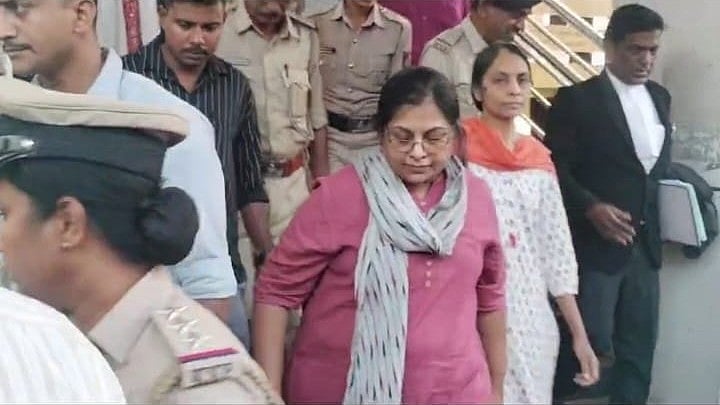
Credit: Special Arrangement
Bengaluru: For the first time in Karnataka, a technique called forensic psychological autopsy (FPA) has been used to investigate a suicide case.
FPA is a forensic method used to understand the mental state of a deceased person prior to their death. A Special Investigation Team (SIT), formed by the Karnataka High Court to investigate an abetment to suicide case involving a Criminal Investigation Department (CID) officer, sought the assistance of officials from NIMHANS to perform the FPA.
Previously, the Mumbai police used this technique while investigating actor Sushant Singh Rajput’s suicide case, and a Central Bureau of Investigation (CBI) team employed FPA in the 2018 Burari deaths in Delhi.
On November 22, 2024, Jeeva S, a 33-year-old businesswoman from Bengaluru, died by suicide at her home in Padmanabhanagar. She left behind an 11-page note detailing the “harassment and torture” she faced from B M Kanaka Lakshmi, a deputy superintendent of police (DySP) with the CID. Jeeva had been summoned for questioning in a case related to irregularities at the Bhovi Corporation.
An officer involved in the investigation explained that FPA was used to understand whether the style and process of investigation had influenced Jeeva’s decision to take the extreme step.
Investigators questioned Jeeva’s friends, reviewed interrogation videos, analysed her suicide note, examined her call details and also looked at the footage of Jeeva entering and leaving the interrogation location.
“By examining the interrogation video, we assessed her facial expressions, intonation and responses,” the officer said. They observed Jeeva’s dressing and hair style, dark circles, and physical exhaustion each time she attended the interrogation.
These observations were compared, and changes were noted. The changes indicated that she expressed stress and showed less interest in herself. The team also reviewed Jeeva’s reactions to each question from the investigating officer to determine if she showed any signs of fear or weariness.
The police spoke to her friends to see if her social behavior and interactions changed after she began attending the interrogations
They also analysed her phone call details to understand her level of attachment or detachment from others. After reviewing all this, the team concluded that the findings were “indicative in nature.”
“She was defiant at the beginning of the interrogation and responded to the investigators. However, during the course of interrogation, she she gradually became less responsive, indicating fear,” the officer close to the investigation said.
This outcome has been recorded in the chargesheet, which is expected to be submitted in the coming days. The police have also obtained prosecution sanction for the case, the source told DH.
However, the source noted that while this will serve as circumstantial evidence to support their investigation, the results are not conclusive.
Highlights - Looking for clues l FPA used in probe into abetment to suicide case involving CID officer l Deceased Jeeva had ended life accusing the officer of harassment during questioning in Bhovi Corpn case l FPA used to check whether the style and process of investigation had influenced Jeeva’s decision to end her life